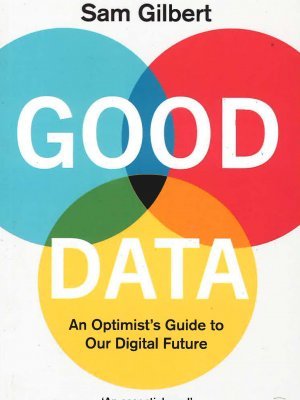Genius – How to Take Smart Ideas Global
Bruce Whitfield
Macmillan – R350.00
I’m not certain that I agree with Bruce Whitfield’s choice of title for this book. When I saw it for the first time, I thought, “Oh no, not another study of Leonardo da Vinci and Einstein, Thomas Edison and Steve Jobs.” But, happily, as I settled down to read, that was not the case.
In fact, Bruce has produced an eminently readable compendium of South African business success stories. What links these businesses is the fact that they have indeed gone global and, by definition, have been enormously successful. This brings me back to how Bruce uses the word ‘genius’. For him, a genius is someone who not only has a terrific idea but has the ability, nous and will to make it happen. In other words, to take those first baby steps as an entrepreneur and develop an idea into something that one day will look like SABMiller or Anglo American.
Both of those giants are featured in Genius, along with the likes of Johann Rupert’s Richemont, Investec, Ninety One, Discovery’s Vitality Group, and quite a few other very big players. But the book is not just about the star attractions in the JSE’s Top 40 Index. We also learn about Johannes le Roux’s success with the alcohol-free gin and tonic, The Duchess, Rose Jordaan’s work at Plaisir (formerly Plaisir de Merle) between Paarl and Stellenbosch, Aisha Pandor’s SweepSouth, and drone-mapping business, Aerobotics, amongst many others. Interestingly for me, there were quite a few I had never heard of or didn’t realise were quite so big!
One key point – and perhaps most disappointingly – what South Africa is also very good at is exporting highly-educated, driven, talented individuals who go on to thrive and develop world-class businesses elsewhere. Among them are the likes of Roelof Botha, now head of venture capital giant, Sequoia, billionaire healthcare entrepreneur, Dr. Patrick Soon-Shiong, software tycoon, Mark Shuttleworth, ex-Clicks CEO, Vikesh Ramsunder, and quite a few more. You could probably add Elon Musk, the world’s richest person, to that list, although Musk is very hostile about his upbringing in Pretoria.
Says Whitfield: “If exports are regarded as a net positive for a country because it encourages companies to grow, invest in new capacity and employ new workers, the constant outflow of talent is one of the most destructive forces in damaging the country’s social fabric, the skills base and intellectual capability to tackle some of its most intractable problems.” He adds: “The country has to find a way to incentivise its brightest and best to stay.”
He's right, of course, but don’t let me mislead you. These gripes about the government are all well-known, and they’re a subtext in Genius. They serve only to highlight what might have been in what is already a long catalogue of considerable successes. GIBS’ founder and strategy professor, Nick Binedell, often points out that South Africa punches well above its weight regarding the companies and people it has produced. Read Genius if you want the evidence to back that view. But, more importantly, read Bruce’s book to inspire yourself to say, “Well, if they could do it, often against considerable odds, what’s to stop me?”
Disclaimer: Bruce Whitfield and I have worked together frequently over a good many years, mainly at what is now Talk Radio 702. I consider him to be both a colleague and friend. However, he knows me well enough to understand that if I thought his book was poor, I would say so. Happily, it’s not, and I can recommend it highly!
Race for Tomorrow – Survival, Innovation and Profit on the Front Lines of the Climate Crisis
Simon Mundy
William Collins – R380.00
Financial Times journalist, Simon Mundy, has written what has to be a contender for Business Book of the Year. Race for Tomorrow is an absolutely masterful overview of the impact of climate change on many different societies worldwide. But it’s a great deal more than that: Mundy also examines how people are reacting to climate change, how they’re attempting to deal with its effects, and how they’re innovating and profiting from it.
On one level, it’s as simple as melting permafrost in Siberia, which allows hunters – for want of a better word – to excavate the bones of woolly mammoths. A rare mammoth tusk, suitably engraved, can fetch more than US$1 million on the Chinese market. To the hunter who found it, it’s worth US$10,000.
On another level altogether, it’s also about a young Icelandic scientist, Edda Aradóttir, who has developed the technology to store as much as three trillion tonnes of carbon dioxide in the rock under her country. As Mundy points out, “that’s more than double the amount that humanity has emitted since the dawn of the Industrial Revolution.” She’s now working with two young Swiss scientists and their company, Climeworks, which has developed the tools to capture the carbon dioxide before delivering it to Aradóttir for conversion and storage.
Does that mean our massive climate change problem is solved? Far from it – it’s a much more complex and nuanced picture. In compiling his image, Mundy travelled for two years through 26 countries, some of which could literally disappear in the not-too-distant future. But as he also points out, unless we make a huge effort to turn things around, life on earth will get much more difficult.
Good Data
Sam Gilbert
Welbeck – R290.00
What’s your view on Facebook and the other Big Tech companies? Are you, perhaps, an adherent of the ‘surveillance capitalism’ school of thought, as expounded by Harvard Business School’s Professor Shoshana Zuboff? She proposes that Facebook, Google, Amazon, et al. steal your personal data, give you nothing back for it and then sell it on, at vast profit, to the advertising industry. Their businesses are, therefore, illegitimate and immoral. It’s a theory driving governments and companies to place more and more controls on how these companies access your data and return control to you.
Key evidence in the case brought by ‘surveillance capitalism’ is the Cambridge Analytica scandal, in which whistle-blower, Christopher Wylie, assisted by The Observer journalist, Carole Cadwalladr, lifted the lid on how the company had used precisely targeted Facebook messaging to gain the White House for Donald Trump and cause Britons to vote to Leave in the Brexit referendum.
Data marketer, Sam Gilbert, was in the audience in London when Wylie and Cadwalladr revealed their findings, and he knew from his own experience that they were wrong. But, by his own admission, he didn’t have the words to explain why, so, aged 39, he went back to Cambridge University to get those words. This book – Good Data – is the end product.
Case by case, line by line, Gilbert shreds nearly all of the assumptions underpinning the accusations against Facebook. Along the way, he makes a compelling case that we should be sharing far more of our personal data – suitably anonymised, of course. This would allow governments and companies to get more accurate trends and information on health and education, for example.
Nor is this a Big Tech whitewash. There’s quite a lot Mark Zuckerberg and his colleagues could be doing better. Nevertheless, Gilbert ends his analysis with a very clear set of recommendations about how these enormous companies should steer themselves into the future and what we should be demanding from them. Highly recommended!






